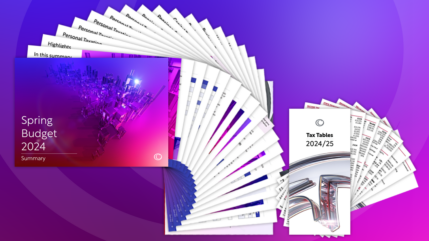Against a backdrop of inflation at its highest level for 30 years and widely anticipated National Insurance rises, there was more than usual interest in Rishi Sunak’s Spring Statement.
The big question on MPs’ minds as Sunak stood up in the House of Commons was how far he would intervene to relieve a potential cost-of-living crisis. Would he stick to his much-derided plan to raise National Insurance (NI) by 1.25 percentage points, or would he stick to his fiscal guns?
Raising the NI threshold
In the event, he did what many were predicting and compromised. While not scrapping the rise in National Insurance completely, he announced that he would be raising the NI threshold, i.e. the amount that a person earns before paying NI. From July, he said the threshold will rise by £3,000 to £12,570 a year. As a result, he said no one earning up to the threshold would pay either income tax or NI. Sunak described this as a tax cut for 30 million workers saving everyone who pays NI more than £330 a year. Sunak said around 70% of workers would be better off even after the social care levy comes in.
Other measures to help people with the cost of living were a 5p a litre cut in fuel duty and removing the 5% VAT rate on energy efficient measures, such as installing solar panels or insulation.
Like all Chancellors, Sunak kept something up his sleeve with the announcement that the basic rate of income tax will be cut by the end of this Parliament. Based on predictions by the Office for Budget Responsibility (OBR) that the country’s finances will be in a healthier state by then, he said that in 2024 the basic rate of income tax will fall from the current 20% to 19%. This would amount to “a £5 billion cut for workers, savers and pensioners.”
Notable by their absence
The statement was notable for what it didn’t cover. There was no mention of raising tax thresholds or allowances, many of which will remain frozen until 2026, or anything about reducing the tax take from Dividend Tax, Inheritance Tax (IHT) and Capital Gains Tax (CGT).
Tax plan
During his statement, Sunak announced he was publishing a tax plan, which he said; “will build a stronger economy by reducing and reforming taxes over the parliament.” This would be achieved in three ways;
- Helping families with the cost of living
- Creating conditions for higher growth
- Ensuring people will be left with more of their money.
With this statement, it could be argued that the Chancellor took some tentative steps towards the last aspect of this plan.













